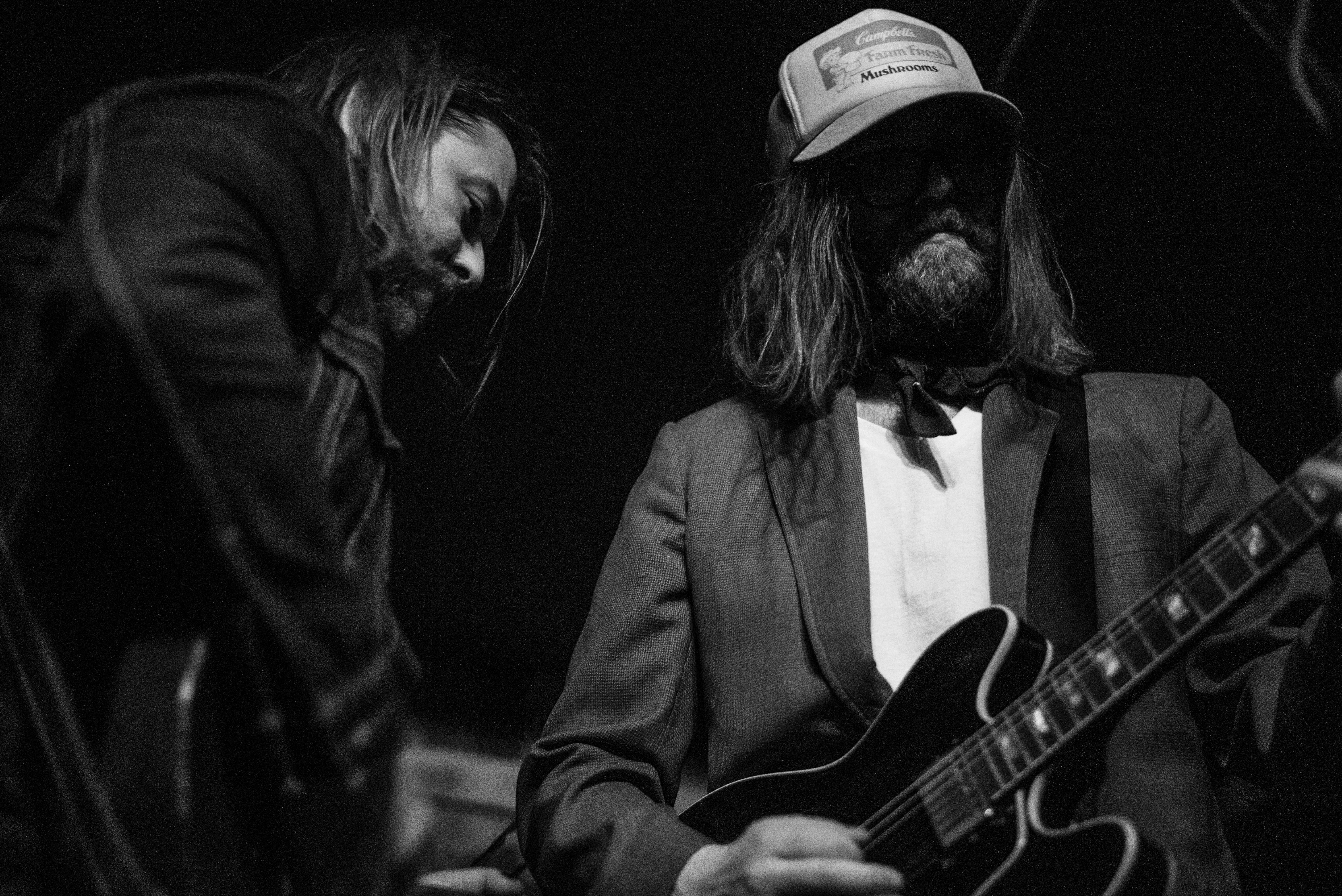Recovering in 2016: Sing the Blues
“If you get too worried, what you ought to do is sing,” say the Wood Brothers. Well, I’m worried. This has been a really hard week, following the election of He-Who-Shall-Not-Be-Named. So I decided to take the Wood Brothers advice and treat my worried mind to some fine music.
Now, November 10 was a stacked deck in the Boston music scene. It didn’t really matter where you went, you were going to hear great music. Muddy Ruckus was at Lizard Lounge, Max Garcia Conover and Son of Town Hall were at The Lilypad, Ben Sollee was at Red Room 939. I went for two late night shows: Aaron Lee Tasjan at Great Scott and then I skipped across the river to Atwood’s to catch Charlie Parr.
Aaron Lee Tasjan and Brian Wright brought the thunder to Great Scott. These are two nasty guitar players. What you might not realize listening to Tasjan’s albums is what incredible vocal range and power he has. That became abundantly clear on “Ready to Die,” from ALT’s new record Silver Tears. He was belting on the chorus and really hitting the falsetto notes that give the song its lingering and haunting quality.
“12 Bar Blues” was a hit with the crowd; it chronicles twelve different bars, like the one with the pool table that will give you an extra game for free (but don’t tell the manager, he doesn’t know) or the one that lets you smoke after 2:00. By the end, people were singing along to the chorus.
Brian Wright played one of his songs, Junk Queen, and it was clear right away why he’s renowned around East Nashville. It’s a dark song, with dark humor, and in that way it’s really damn honest. “So kiss me my love, with those frost-bitten lips / And touch me my love with your burnt fingertips / And I will go and score for you when you got the shakes / And I’ll burn you with cigarettes to keep you awake. / And we’ll both have the hunger, and we’ll both have the need / But we’ll only fight the shadows, babe, that both of us see.”
I loved the way ALT dealt with the jackass who kept shouting out “Texas!” at Brian (who is from Waco). After mentioning that Lydia Loveless would be coming up next, the drunk dude called out “pedal steel!” Aaron Lee said, “You’re right, there is a pedal steel up here. You’re really good at shouting things. It’s a strength of yours. Next time at work when they’re asking you to name your strengths, you can say that.” The whole place laughed; later, drunk jackass apologized to Aaron at the merch table.
“Bitch Can’t Sing,” from In The Blazes and “Success” rounded out the set, a grooving, bluesy tune that was downright ferocious. It was a perfect end to a set full of improvisation and creativity, with Tasjan and Wright trading solos back and forth throughout. These guys can play, and you should make it a point to see them as soon as you can.
After driving across the Charles, I walked in, hearing the tail end of “Hobo.” Charlie Parr’s voice and fingerstyle blues cut through all artifice and just nail you to the wall. I’ve seen him twice before, and you’d think that I’d be prepared for it by now, but each time it is fresh and sharp. In an interview last year, Charlie said that each performance is “moving molecules around the room,” and in that sense, every song is different each time it’s performed. He seems to really treat it that way–anticipating that he’ll hear the song in a new way. It was great to hear “1922 Blues,” and “Falcon,” both which had the packed room at Atwood’s moving. He balanced the set with rollicking version of songs like “Motorcycle Blues” and “True Friends” with the more somber “Cheap Wine” and the old folk song “Old Dog Blue.” “Over the Red Cedar” was a real highlight from early in the set, with its plaintive refrain, “It’s out lasting you.”
Charlie always mentions his mother, and he said that he’d play a song that recently moved from her list of songs she doesn’t like to her list of songs she likes ok. That one was “Badger,” which is just a wonderful song about innocence (and losing it). It’s a true story from Charlie’s childhood; his mother told him, “you didn’t really write the song, you just wrote down what happened.” I love the fact that the song begins and ends with these lines, holding on to childhood: “It was late in the summer, when the corn was fully grown / We’d gone for a swim in the pond on my Uncle Henry’s farm.”
Late in the set, he played, “Mastodon,” which, for me, would be worth the ticket price if he just played that one song and left the stage. The rhythm of the rolling guitar pattern is so intoxicating. I also loved hearing “Delia,” which is on his latest album Stumpjumper (well worth your time) but I’d never heard him play live.
The crowd at Atwood’s was mostly really attentive, treating this show like a listening room rather than a bar. But that’s mostly just because Charlie is such a captivating performer, despite the fact that he’s also incredibly humble and gracious. You really don’t want to miss a note.
I have to say, I’m still worried, but it was really helpful to get out and be with people spreading good work around the country. We’re going to need a lot more of that.

